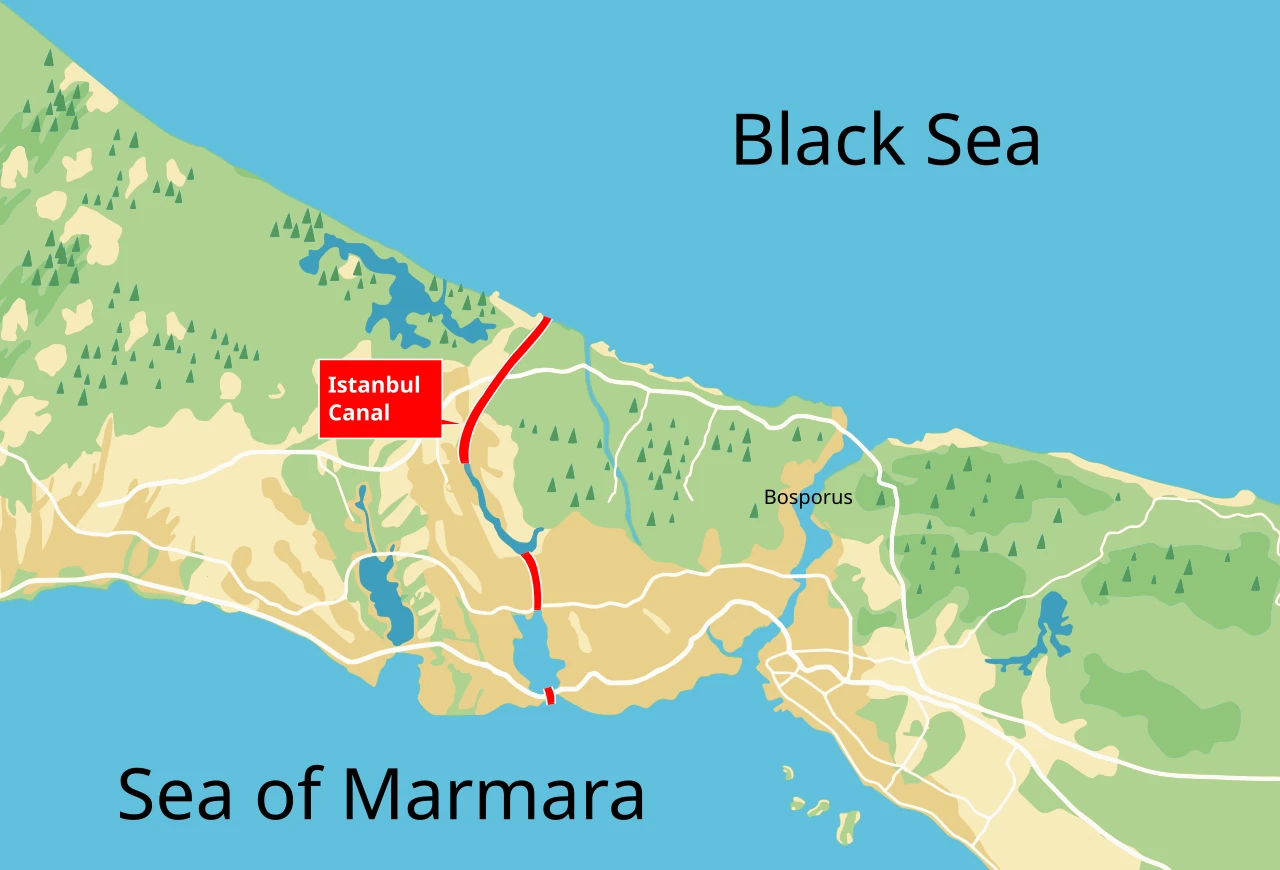Nasrallah’s death may mean Lebanon’s independence – under one condition
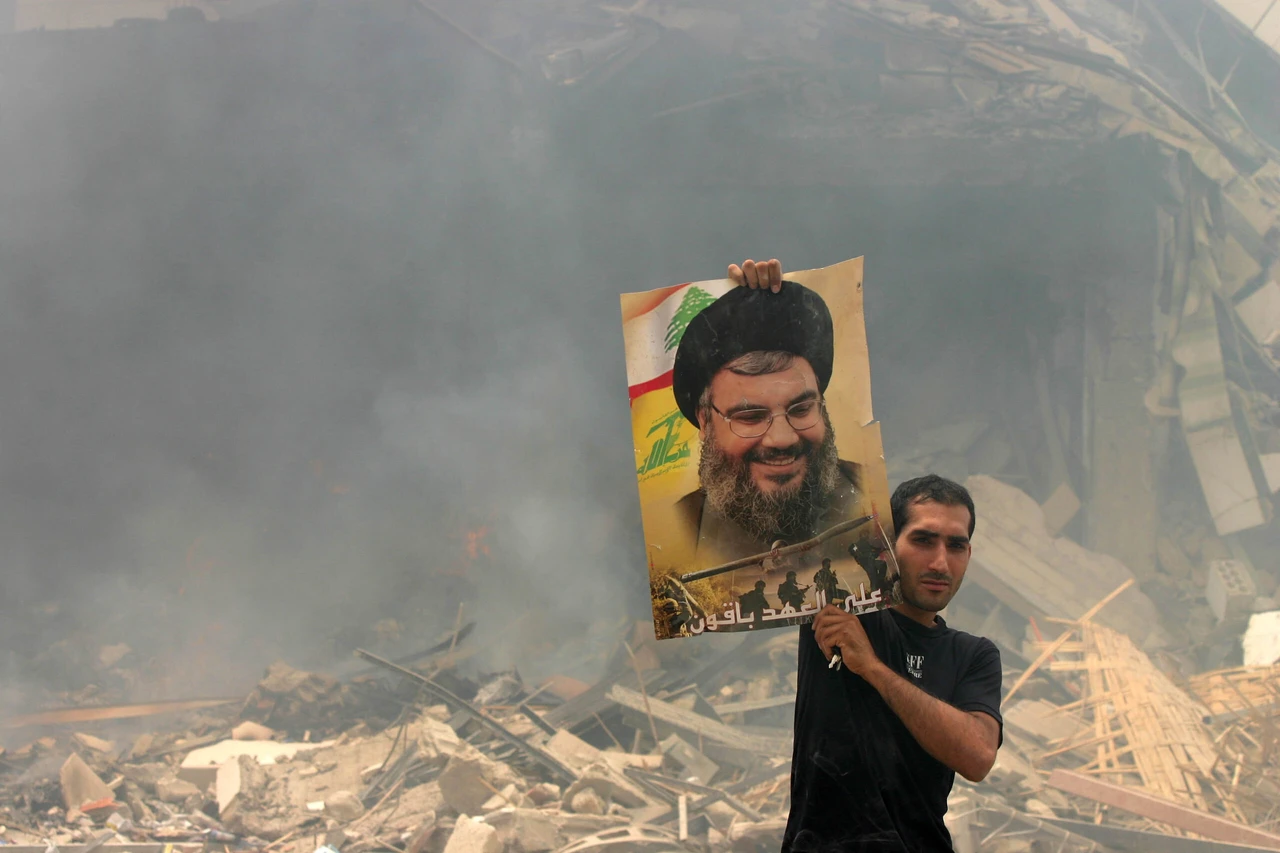 A file photo shows a Lebanese man showing a poster of Hezbollah leader Hassan Nasrallah that he found among the rubble of his house in Beirut, Lebanon, July 23, 2006. (AA Photo)
A file photo shows a Lebanese man showing a poster of Hezbollah leader Hassan Nasrallah that he found among the rubble of his house in Beirut, Lebanon, July 23, 2006. (AA Photo)
Lebanon’s elite including once-notorious warlords must realize that this could be a historic opportunity to build a state where the rights of all stakeholders are protected.
The overwhelming dominance of Hezbollah, which has unjustly controlled the country’s institutions, including border security, is fading.
Hezbollah dictated and intimidated the Lebanese public for decades under the motto, “Without us, you have no protection against Israel.”
‘Without us, you have no protection against Israel’
Although merely one of many players in Lebanon’s intricate political and demographic landscape, it has often used force, at times assassinations and explosions, to establish its hold. The succession of its leader, Hassan Nasrallah, is unlikely to be as smooth as his own rise to power after Abbas Musawi‘s assassination in 1992. In Lebanon, Nasrallah has become synonymous with Hezbollah, and Hezbollah with Nasrallah.
The indictment of five Hezbollah members by an independent international tribunal for the assassination of Prime Minister Rafik Hariri was one of Hezbollah’s key testaments to vile political influence cultivation. After Hariri’s brutal killing, Nasrallah extended condolences to his son, Saad Hariri, who succeeded his father.
Hezbollah’s supporters nevertheless continued to argue that Nasrallah was a unifying figure for all of Lebanon. They often also cite the vocal support he received from Christian groups that aligned themselves for their own survival. Let’s be clear: the majority of Lebanese fear Nasrallah more than they admire him.
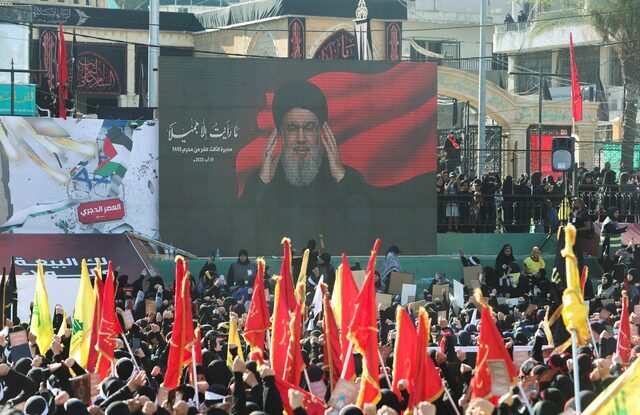
Nasrallah’s formula: Always align with Iran’s interests
Nasrallah’s influence extended beyond sectarian lines following Hezbollah’s success against Israel in the 2006 war. However, his image was severely damaged by the group’s violent involvement in Syria, where they supported the brutal Assad regime. Throughout, Nasrallah has remained firmly aligned with Iran’s interests.
Nevertheless being depicted as an Iranian proxy, his political charisma often outshined that of even Iranian leaders. U.S.-based New Lines Magazine’s Hassan Hassan and Kareem Shaheen suggest that his death would be more consequential than those of Qassem Soleimani or Osama bin Laden. They argue that the impact of Nasrallah’s death could rival that of Egypt’s legendary leader Gamal Abdel Nasser.
Lebanon’s stakeholders are likely concerned that Hezbollah’s new leadership could be even more aggressive, seeking to consolidate greater power in Lebanon while sidelining the fight with Israel. Nasrallah was never a central figure in the Gazan cause; Hezbollah’s involvement in the conflict with Israel has been largely peripheral, committing few significant resources.
While Israeli atrocities verge on genocide, a Hezbollah response would not have ended the violence. Nasrallah understood Israel’s military superiority and fell victim to a gambit by Prime Minister Benjamin Netanyahu, who is testing boundaries during a period of weak U.S. decision-making and the upcoming presidential election.
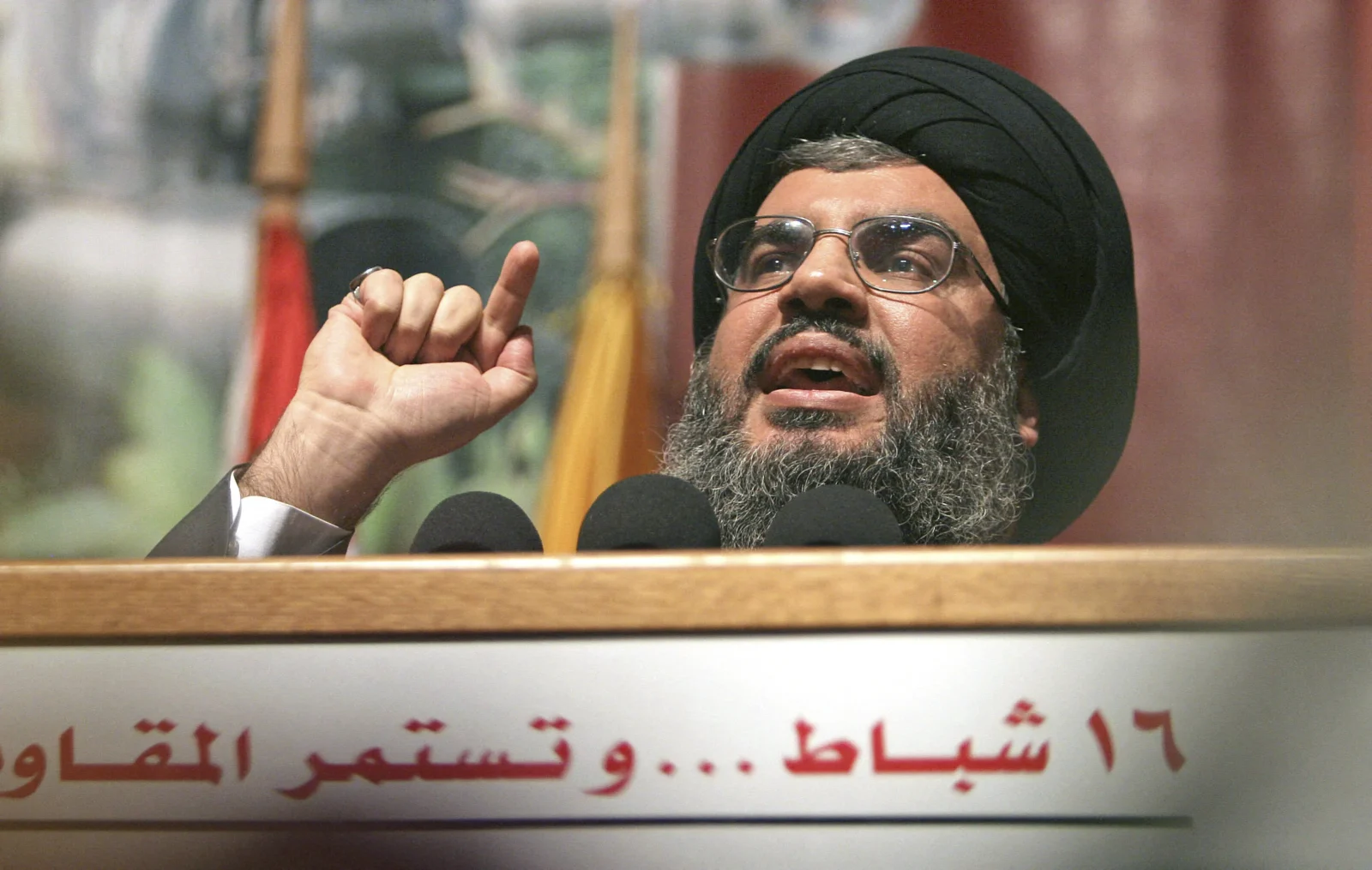
Lebanon will never become like Jordan
Israel envisions Lebanon evolving into a state similar to Jordan – a semi-hostile regime that is moderately functional, avoids hosting proxies within its borders, serves the interests of its elite and some citizens, and integrates into the Western security framework.
It is unrealistic to presume that this form of relationship could develop with Lebanon as the social structure is formed of larger diverse societal blocs. Lebanon may become more pragmatic leaving no room for any justifications for Israel’s aggressions in the eyes of the international community.
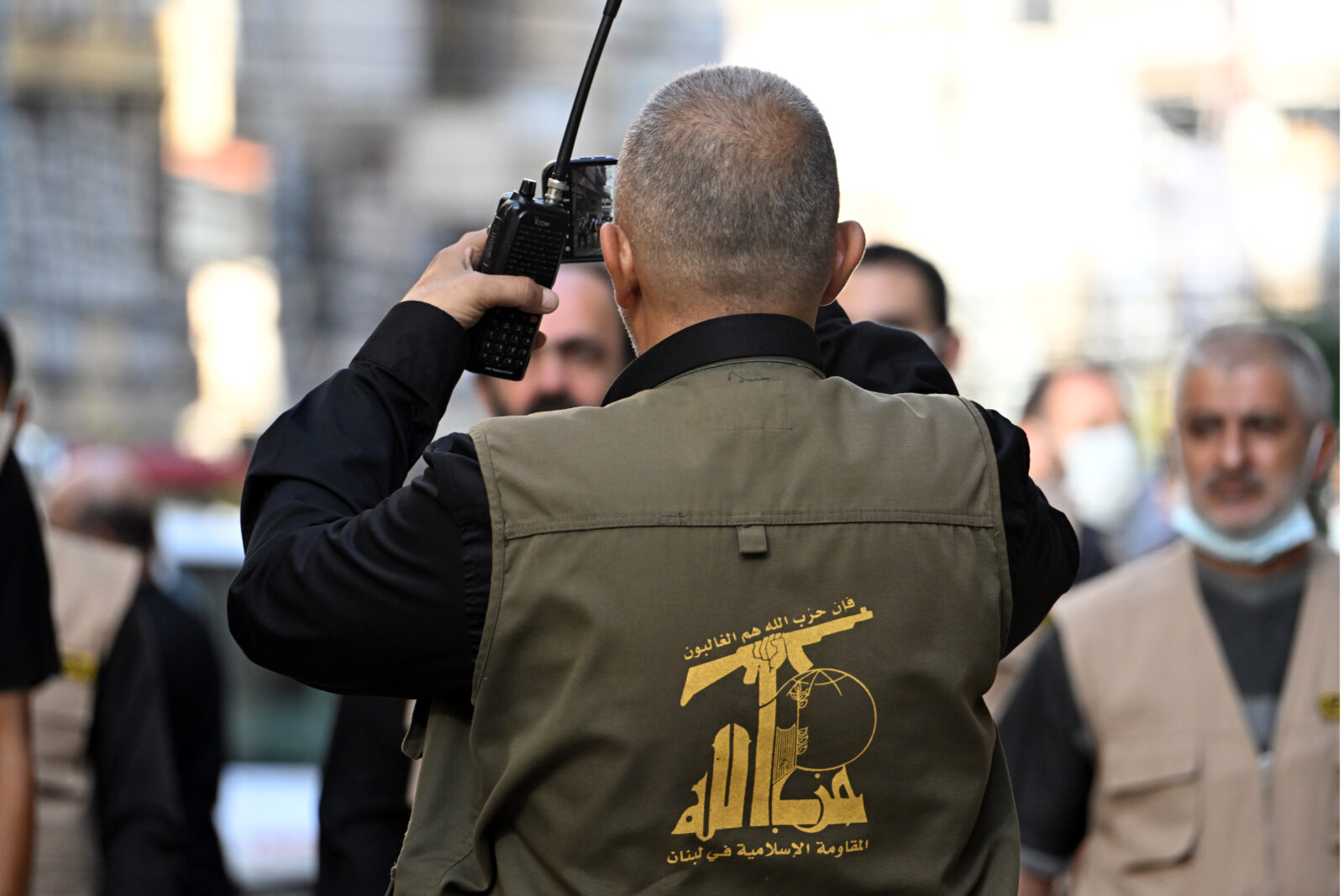
What’s next
Israel’s ongoing military campaign in Lebanon is likely to persist until the next U.S. president takes office and Netanyahu’s manipulative politics in Washington diminish. Meanwhile, Lebanon’s stakeholders must wait to see how Hezbollah’s military power evolves or declines. If Hezbollah is forced underground, Lebanon could seize this opportunity to build an organization that genuinely represents all its stakeholders.
